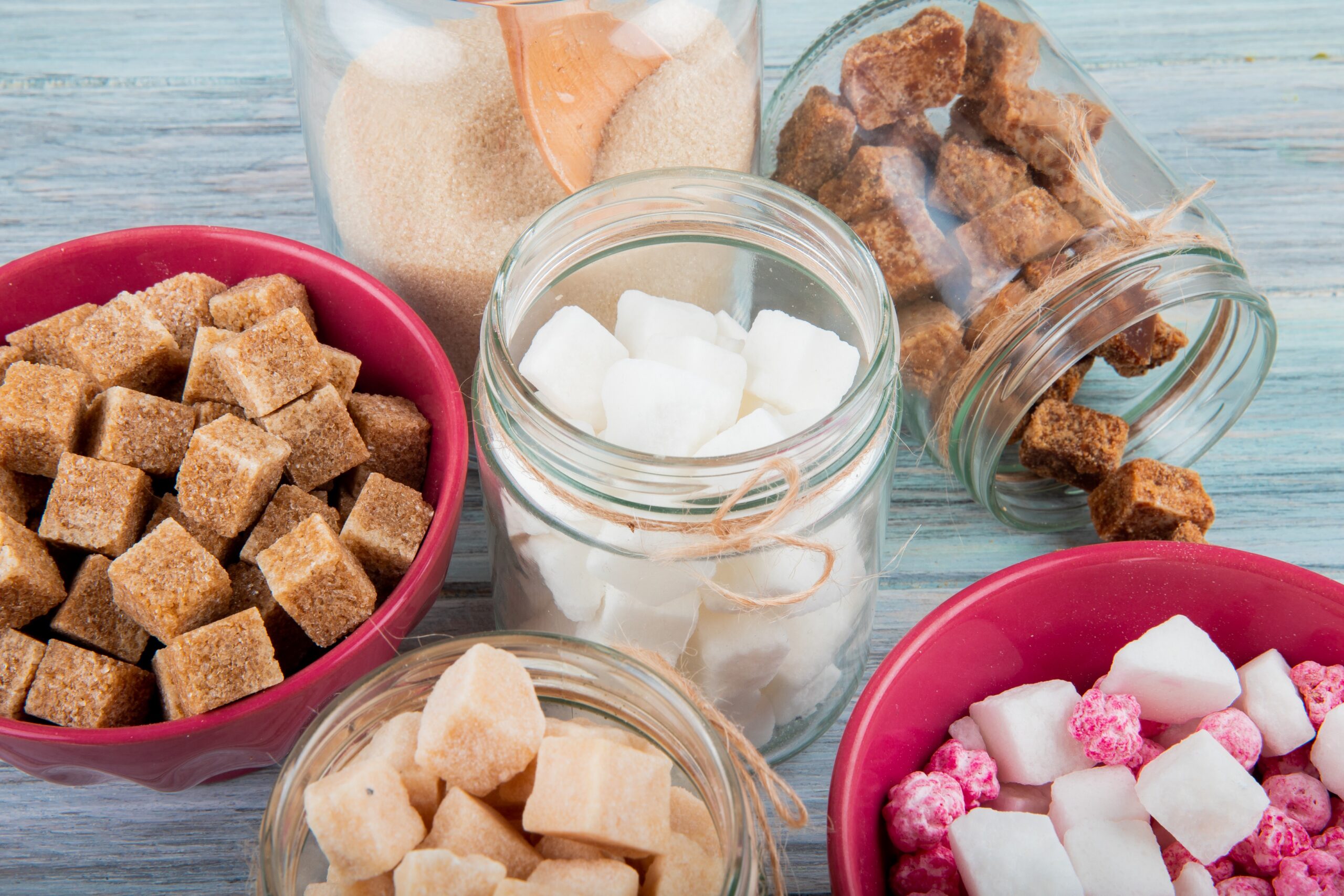Artificial sweeteners, also known as low-calorie sweeteners (LCS), are sugar substitutes added to foods and beverages to provide sweetness without the calories of regular sugar. These intense sweeteners can be hundreds to thousands of times sweeter than sugar, making them popular in “diet” or “sugar-free” products.
There are six LCS (low calorie sweeteners) approved by the US Food and Drug Administration (FDA) to be consumed by the general public. While they help reduce calorie intake, growing evidence suggests that artificial sweeteners may pose several health risks. including:
- Aspartame
- Acesulfame- potassium (acesulfame-K)
- Advantame
- Neotame
- Saccharin
- Sucralose
Why Are Artificial Sweeteners in High Demand?
With rising obesity and diabetes rates, many people turn to artificial sweeteners as a “healthier” alternative to sugar. Since they contribute minimal to no calories, they are widely used in diet sodas, sugar-free snacks, and other processed foods. However, research indicates that these sweeteners may not be as harmless as once believed.
Potential Health Risks of Artificial Sweeteners
- Weight Gain and Metabolic Disorders
Contrary to their intended purpose, artificial sweeteners may contribute to weight gain and metabolic dysfunction. According to Dr. Mark Hyman, these sweeteners trick the body into thinking it’s consuming real sugar, triggering insulin release—the fat-storage hormone. This can slow metabolism, increase cravings for sugary and starchy foods, and lead to overeating. A study from the National Health and Nutrition Examination Survey (NHANES III) found that aspartame consumption was linked to glucose intolerance in obese individuals. Long-term use may also contribute to hyperglycemia (high blood sugar), hyperlipidemia (elevated fats in blood), and insulin resistance, increasing the risk of diabetes and metabolic syndrome. - Gut Microbiome Imbalance
Artificial sweeteners may disrupt the gut microbiota, leading to dysbiosis—an imbalance in gut bacteria. This can cause digestive issues like bloating, gas, and inflammation, and may even contribute to gastrointestinal disorders. Some studies suggest that non-caloric sweeteners alter gut bacteria in ways that could negatively impact metabolism and immunity, though more research is needed. - Increased Sugar Cravings
Because artificial sweeteners are much sweeter than sugar, they can desensitize taste buds, making naturally sweet foods (like fruits) less satisfying. This can lead to increased cravings for sugary and processed foods, further contributing to poor dietary habits.
Should You Avoid Artificial Sweeteners?
While regulatory agencies deem artificial sweeteners safe in limited amounts, emerging research suggests potential risks, including metabolic dysfunction, weight gain, and gut health disruption. Until more conclusive evidence is available, moderation is key. For a healthier alternative, consider natural sweeteners like stevia or monk fruit in small quantities. Ultimately, reducing overall sweetness in your diet—whether from sugar or artificial substitutes—may be the best approach for long-term health.
